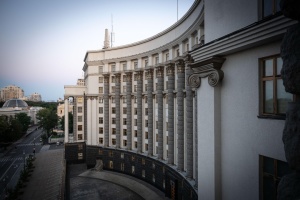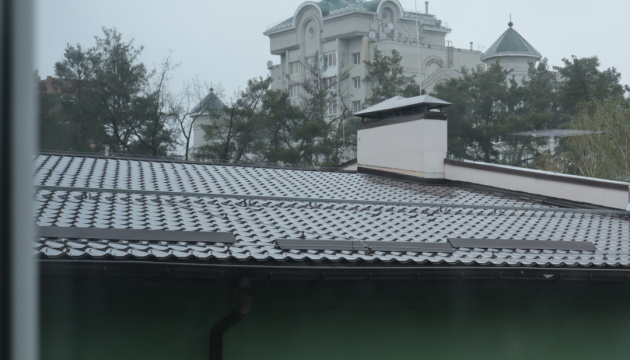
Solar Power Generation Unit on Top of Irpin Lyceum: Not Only About Energy Efficiency
On April 18, the results of a fundamentally new reconstruction effort for local educational facilities damaged at the outset of the large-scale invasion two years ago were solemnly presented in Irpin, Kyiv region. A solar power generation unit with an energy storage system was installed on the roof of the reconstructed Irpin Lyceum No. 1. The plant will allow reducing the school’s annual electricity consumption by 30-40% and, in case of blackouts, keeping the educational process running.
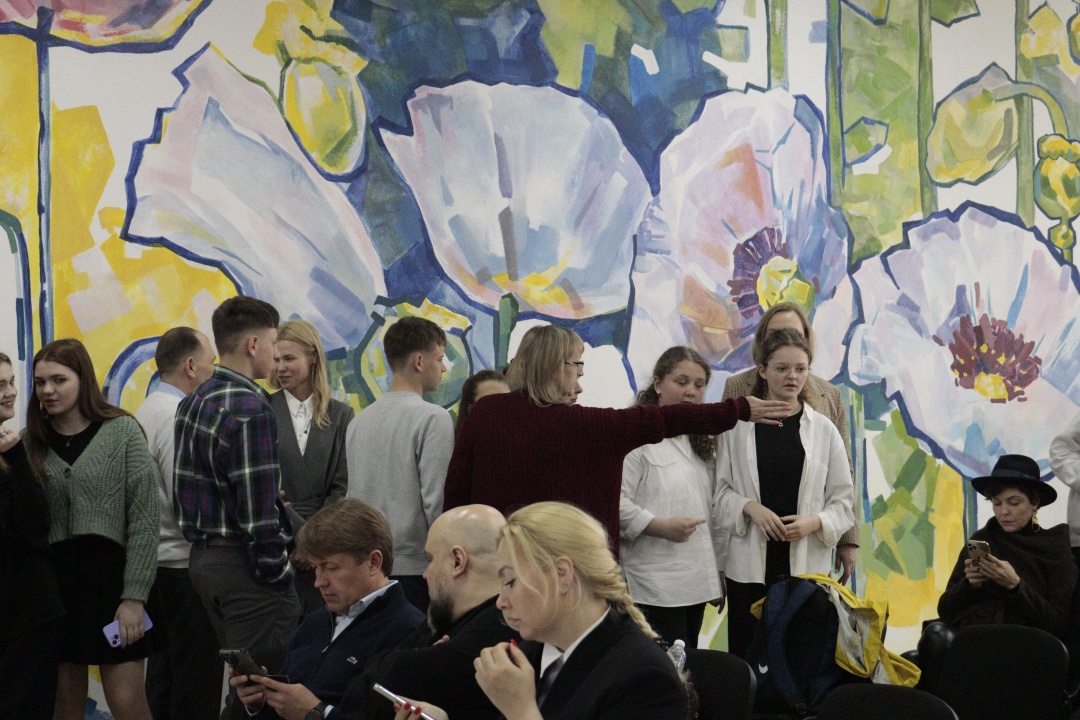
A SOLAR POWER GENERATION UNIT ON THE SCHOOL’S ROOF IS NO LONGER A NOVELTY, BUT A REALITY
Having arrived in Irpin, we go straight to the school. Lyceum No. 1 is a three-storey building consisting of two sections, a new and an old one. It’s a tidy place where hallways are now filled with the cheerful noise from students rushing to classes. However, the air raid alert reminds us of today’s realities... Together with the students and staff, we have to proceed to a shelter in the school’s basement. It is equipped with all necessities: several rows of desks, a first aid area, fresh water, and a WC, that is, everything to keep children safe and teachers --able to continue their work almost uninterrupted.

The representative of the school administration tells us about the significant damage the lyceum suffered during the Russian occupation in 2022. The building’s facade, walls, roof, windows, entrance, interior doors, sports facilities, assembly halls, and wiring were damaged.

The community helped restore the school, with the final touch being the installation of a solar power generation unit to ensure the school’s energy independence.
“We do not practice a mixed format of teaching, only full-time. Therefore, the risk of power outages can affect the quality of our educational services. Thanks to the alternative system for power generation, we will now be able to avoid forced changes to a school attendance format in case of power outages, which we had last year,” Nadiia Yarova, Deputy Principal of the lyceum, told Ukrinform.
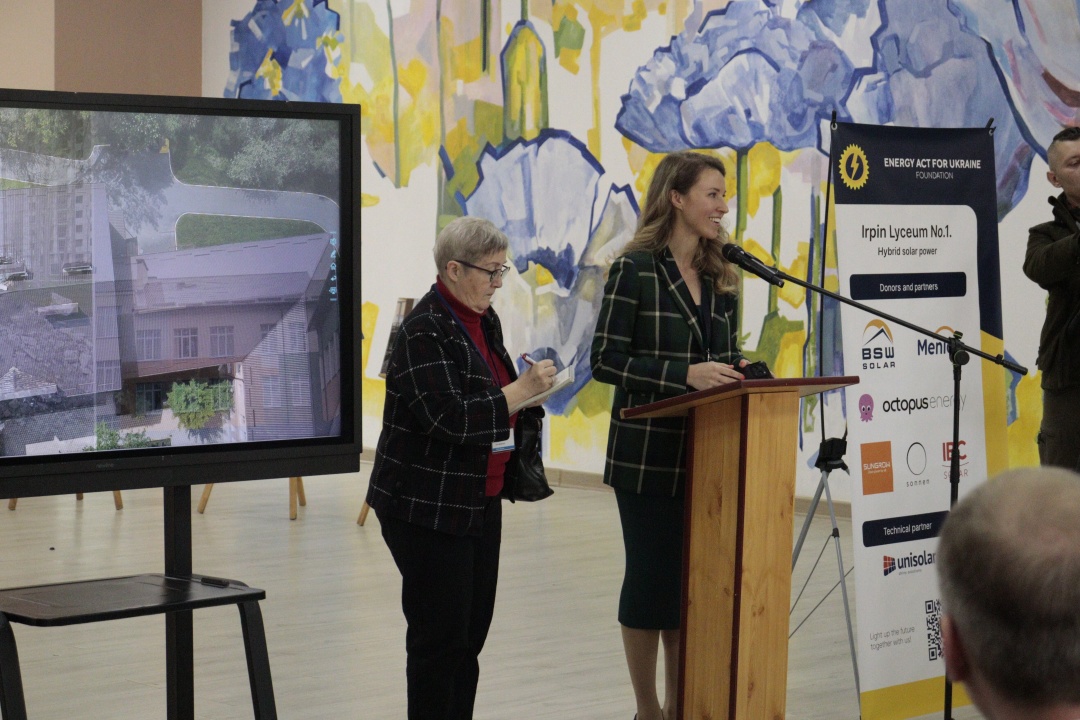
We go up to the top floor of the newly erected building, where we can see a panorama of the roof of the older one with a dark ‘mirror’ of solar panels, 64 in total. We look at this hi tech beauty and return to the school assembly hall, where the founder of the Energy Act for Ukraine Charity Foundation, Yuliana Onishchuk, tells us about the plant and, in general, about the investment project for equipping the school, in which the foundation was directly involved.
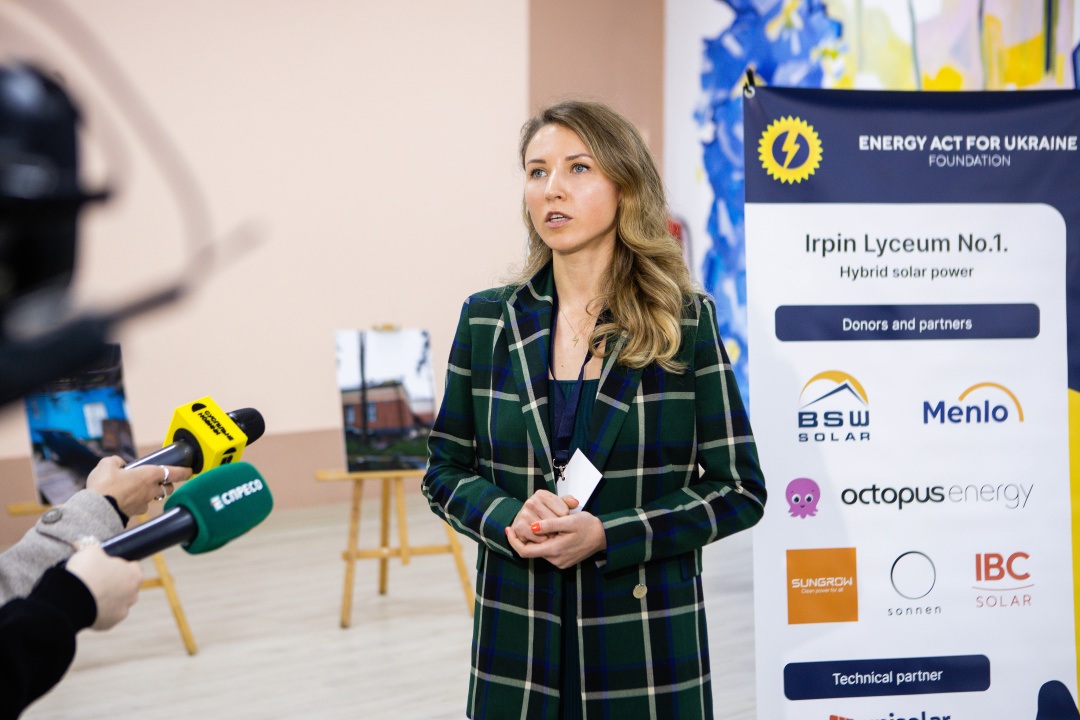
According to Ms Onishchuk, the foundation’s goal is to restore Ukrainian schools that have suffered from Russian attacks, by employing solar energy.

“This seemingly simple structure you see on the roof of this lyceum will help it save up to EUR 1,200 annually. We select technology depending on the needs of a particular facility. Before launching a project, we closely communicate with school administrations to clearly understand what they need first,” Ms Onishchuk told us.
“We need to develop distributed decentralized generation based on green energy and working in synergy with Energy Storage,” emphasized Andrii Herus, Chairman of the Verkhovna Rada Committee on Energy, Housing and Utilities, President Volodymyr Zelensky’s envoy to the Cabinet of Ministers.
The Foundation implemented the project with the help of international partners. The German solar association BSW Solar made an important contribution.
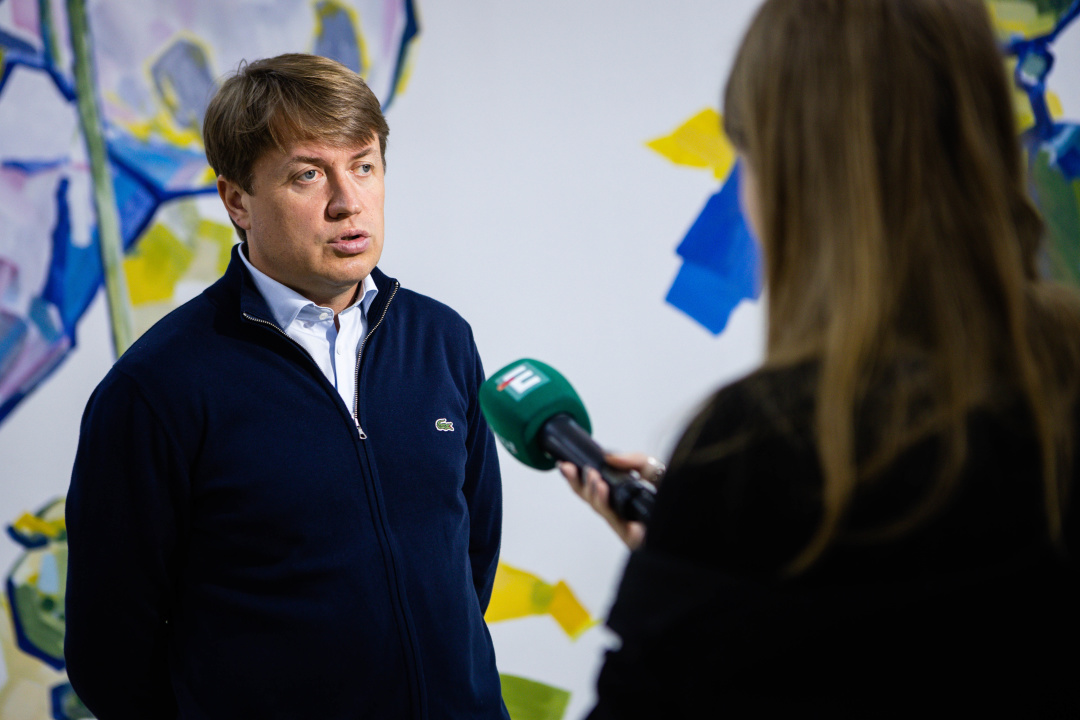
“We are committed to helping Ukraine defend its right to education even in times of war. And we see our support as a vital step towards rebuilding the nation, contributing to its resilience and strengthening hope for a better tomorrow,” Jörg Ebel, President of the German Solar Association (BSW), said at the presentation.


Oleksandr Markushyn, Irpin Mayor, who also attended the event, thanked the German delegation and the Foundation for their support in rebuilding the town’s infrastructure.

“The project was implemented within a short period: just six months, and thanks to it, we will now be able to continue to provide quality educational services to our residents. By the way, this is the second energy-independent school in our town,” he said.
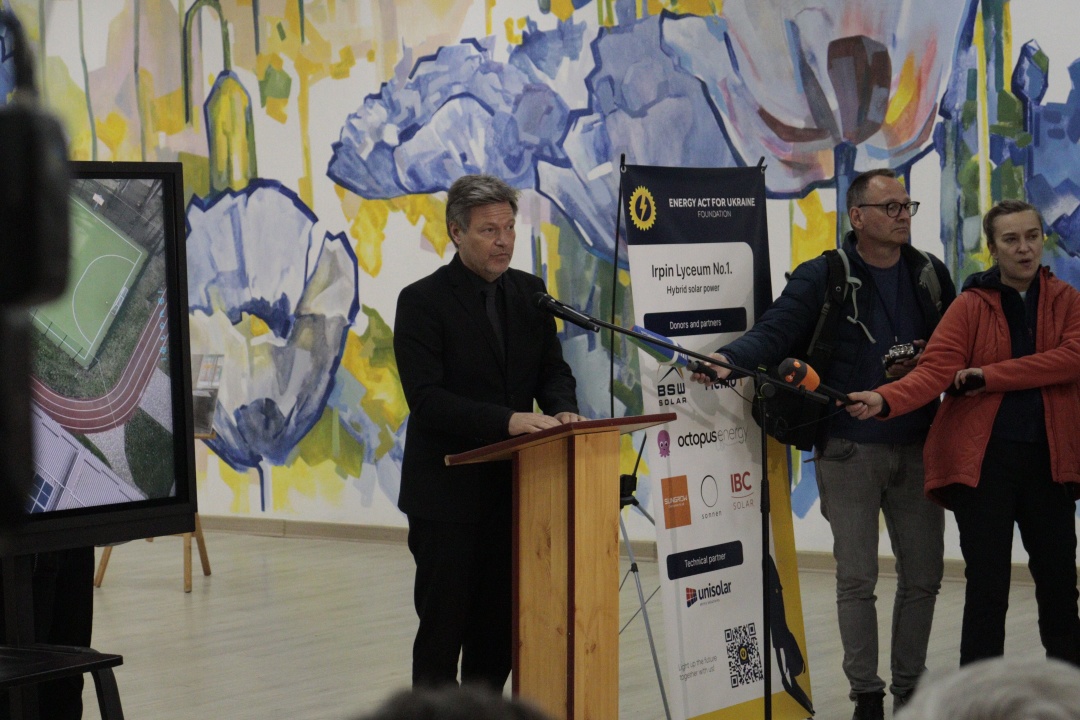
The distinguished guest, Vice Chancellor of Germany and Minister of Economy Robert Habeck, who was on a visit to Ukraine at the time and joined the event with the German delegation, also spoke about European values.
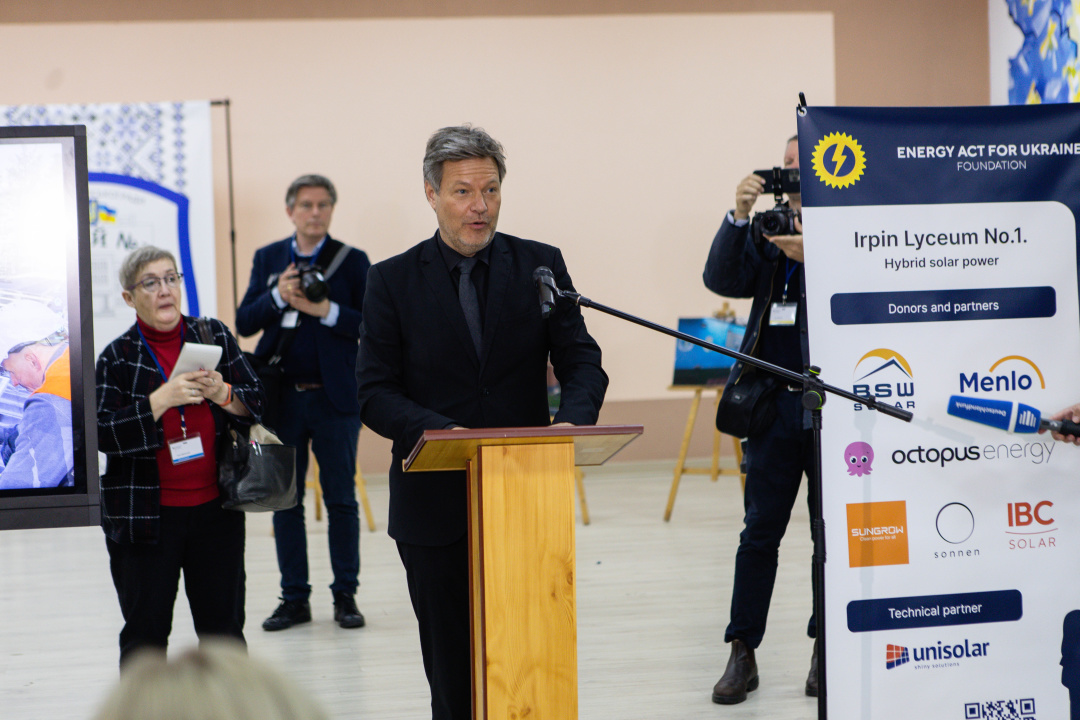
“Ukraine is fighting for its self-determination and for its territorial integrity against Putin’s aggression, but it is also fighting for the values that unite and define Europe,” Habeck said.
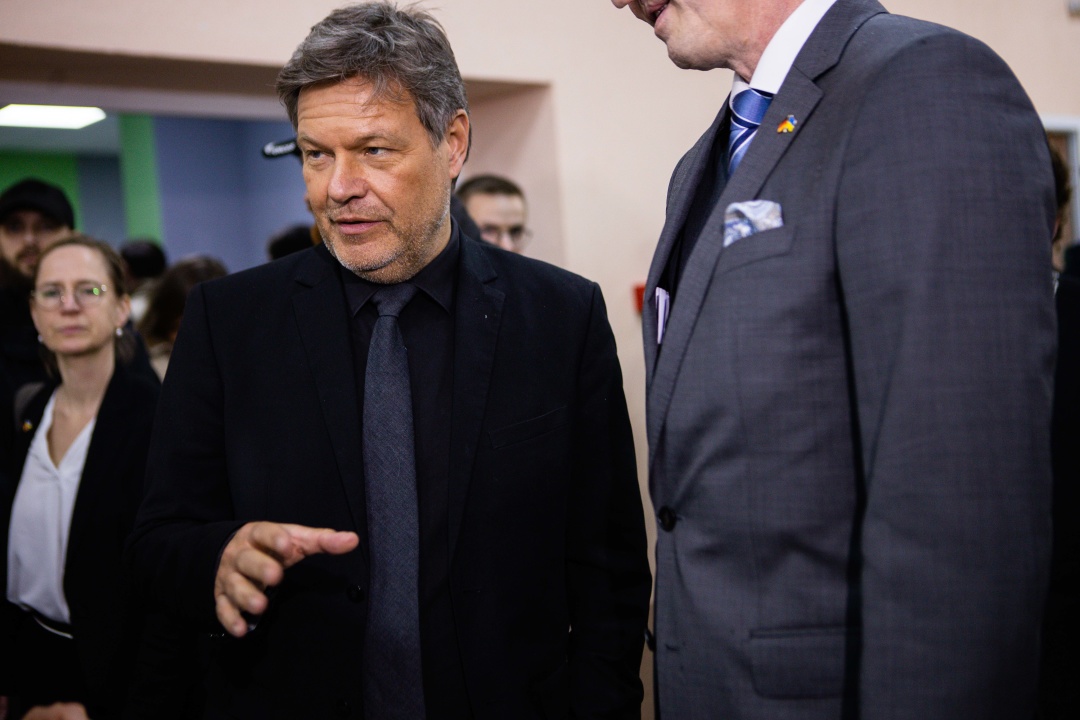
He therefore emphasized the need for close communication between the two countries and promised that Germany would continue to take an active part in Ukraine’s reconstruction. In particular, it will contribute to electricity independence of the country’s infrastructure. After all, this could be a lifesaving solution in the face of Russia’s attempts to disable the country’s critical infrastructure.
"It’s one thing to hit a single large power generating facility, but it’s another thing to hit thousands of smaller plants installed on roofs throughout the country,’ the German Minister said.
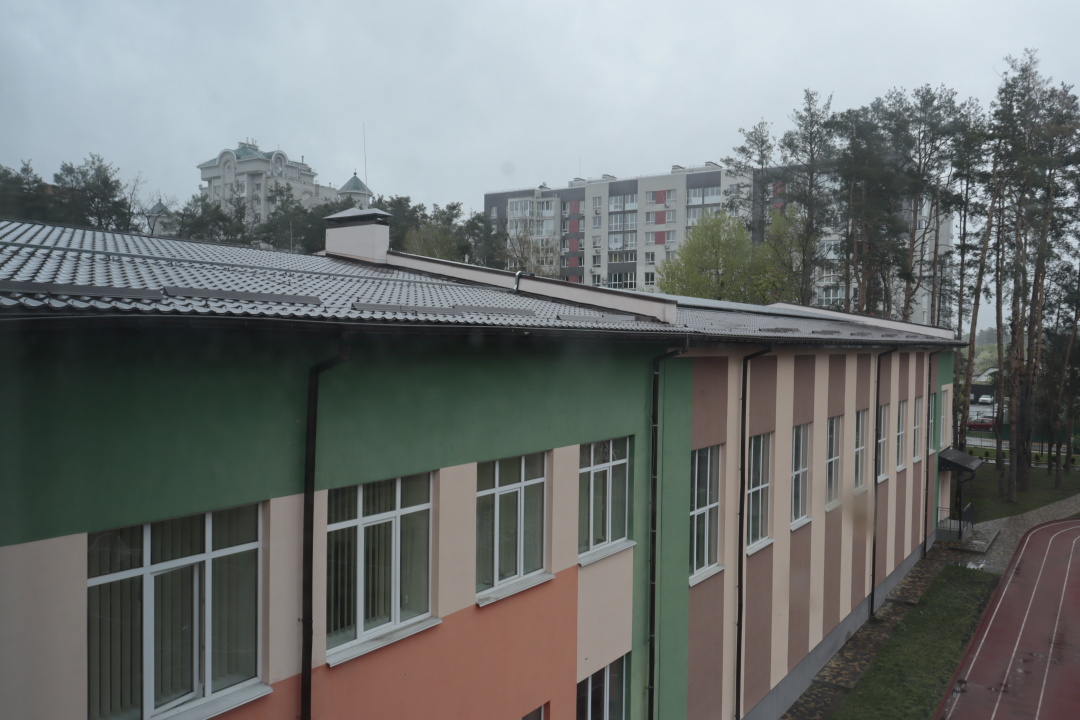
ENERGY INDEPENDENCE OF AN EDUCATIONAL FACILITY IS THE BASIS FOR A CONTINUOUS EDUCATIONAL PROCESS
In the case of the Irpin Lyceum, it was about a hybrid form of energy supply from the very beginning. That is, today, the school is simultaneously connected to the traditional grid, as well as to storage systems and the solar power plant, too, as a generating facility.
In other words, under normal conditions, the system operates mainly thanks to a traditional source, i.e. power from the general grid. At the same time, the solar power plant operates by accumulating electricity in its battery. In the event of a power outage, in addition to the solar plants, the storage battery is switched on to cover the school’s electricity needs.
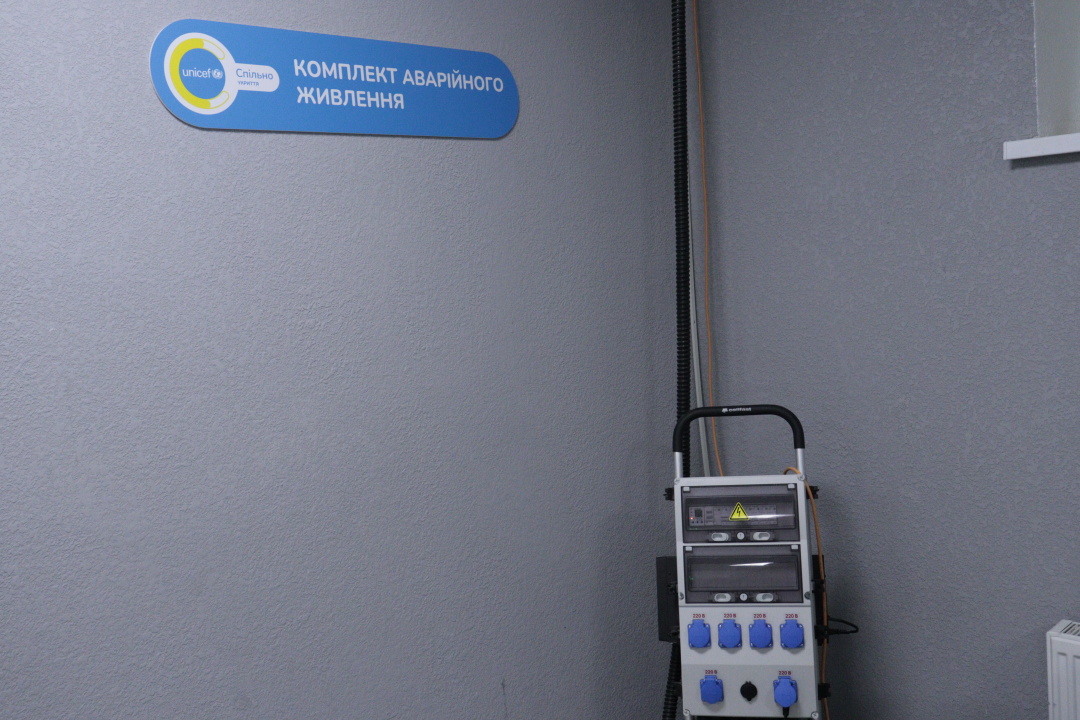
Moreover, on sunny days, given the reduction in consumption in afternoon hours, the school can operate using purely green energy. According to Ms Onishchuk, the most favorable period to this end is from April to October.
“We have connected to our autonomous systems the ground and first floors of the lyceum, as well as the bomb shelter and external lighting. The second floor and the cafeteria require more power so they are powered only by centralized grids,” Ms Onishchuk explained.
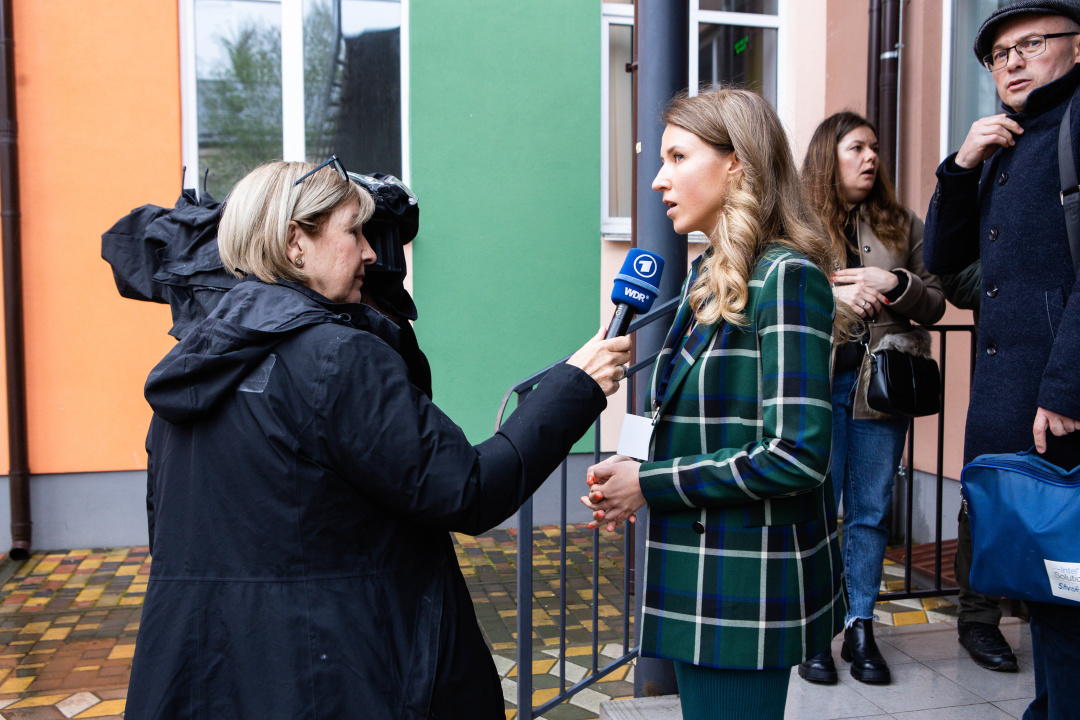
The construction cost the Energy Act for Ukraine Foundation a total of EUR 61,000, with the equipment’s lifespan stated at 25 years. Also, the Foundation will initially deal with the plant’s maintenance.
“We are monitoring the plant’s operation using our own capabilities. The Foundation is in close contact with contractors. That is, we address all technical issues at the outset of operation,” said Yuliana Onishchuk.
However, since the facility is still owned by the community, it is the latter that will be responsible for the plant maintenance after the warranty period (up to five years) expires. Therefore, the Foundation is already reminding schools to conclude contracts with specialized contractors who will then perform scheduled maintenance work at the schools’ solar power plants.
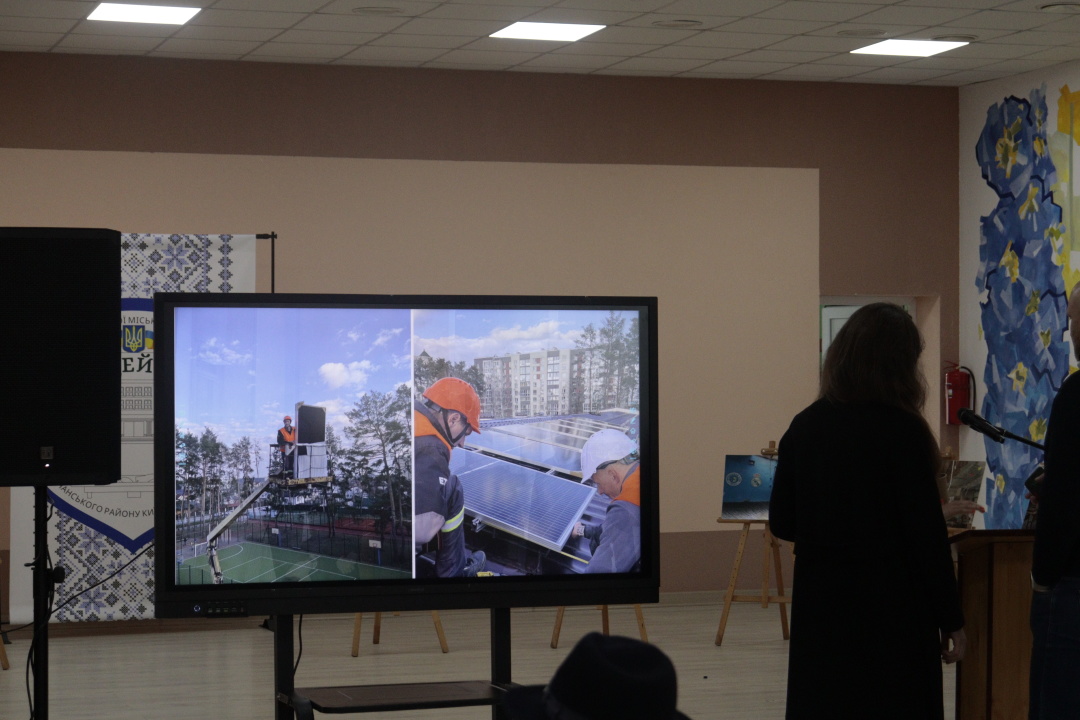
100SOLARSCHOOLS PROJECT: ‘SOLAR’ SCHOOLS WILL SOON BE IN ALMOST EVERY REGION OF THE COUNTRY
The Energy Act for Ukraine Foundation has been operating since April 2022. From the first day of its existence, the organization set a goal to equip 100 schools in Ukraine with solar generating systems within five years, making the facilities energy independent.
“We are constructing them in the cities that have survived occupation or suffered significant damage,” said Yuliana Onishchuk.
It should be noted that as a result of Russian aggression, about 400 educational facilities in Ukraine have been completely destroyed and almost 3,000 -- damaged.

The criteria for schools to be eligible for the Foundation’s assistance include full-time or mixed learning format, an equipped bomb shelter, and over 500 students attending school.
“This is necessary to ensure that the financial costs are commensurate with the benefits that the community will get from our project,” explained the head of the Foundation.
In addition to BSW-Solar, private European companies, including Sonnen, Sungrow, IBC SOLAR, as well as Octopus Energy and Menlo Electric, have provided financial support to the Foundation.
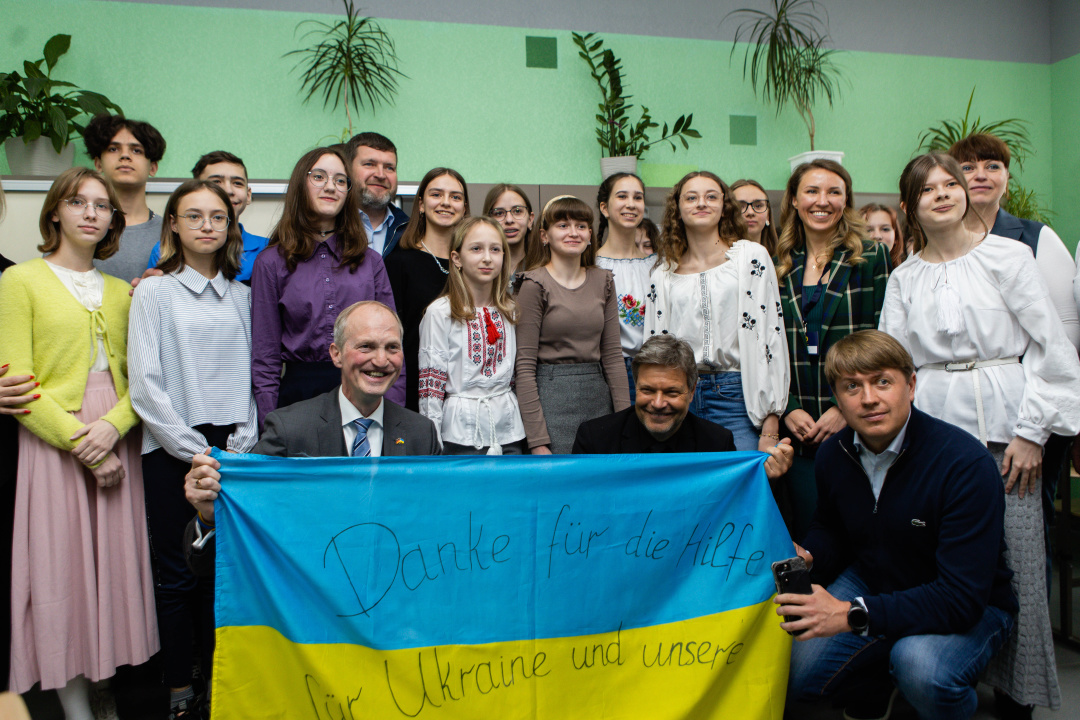
Thus, with their help, Irpin Lyceum No. 1 can now serve the community even in the event of a blackout. It is a good example of how local communities can cooperate with philanthropists, adhering to the “better than before” principle in the course of reconstruction.
Liza Bykova, Kyiv
Photo by author and Energy Act For Ukraine Foundation



